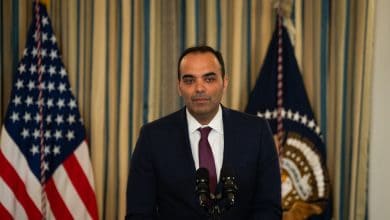China Says It Will Do More to Vaccinate Older People Against Covid

Faced with growing social unrest over its tough pandemic measures, China said on Tuesday it would ramp up vaccination of its oldest citizens, a move that experts have argued is crucial if the world’s second largest economy is to ease Covid measures and reopen its economy.
Authorities will bring vaccines to people in nursing homes, go door-to-door, use mobile vaccination stations and press those who are reluctant to give a reason, according to a statement from the National Health Commission. About 90 percent of China’s total population is fully vaccinated, but among those 80 and older, the number is much lower — 65.8 percent are fully vaccinated, and only 40 percent have received a booster.
“It is necessary to speed up vaccination, especially the vaccination of the elderly,” said Xia Gang, a National Health Commission official in charge of vaccination. “I hope that elderly friends will actively complete the vaccination as soon as possible to protect the health of themselves and their families.”
The new initiative was made public ahead of a news conference with officials from China’s top health bodies on Tuesday afternoon. News of the briefing prompted rumors that authorities were considering easing testing and isolation requirements, stoking optimism in Asian financial markets that China was ready to make a bigger move away from its “zero Covid” rules. Despite no signs of a broader shift, investors appeared to be relieved that Chinese officials were making any effort.
Hong Kong’s market finished 5 percent higher, while in Shanghai and Shenzhen, stocks rose more than 2 percent.
Similar optimism fueled a rally in Chinese stocks earlier this month when investors on Wall Street made a bet that China would loosen its measures amid growing economic pain. That positive sentiment remained as China’s National Health Commission issued a flurry of small changes aimed at narrowing the scope of the country’s vast and intrusive pandemic apparatus.
But in the weeks since, it became clear that these measures would not amount to a broader shift in the “zero Covid” policy, and fears about the effect on the global economy have grown.
China faces a predicament: Its top leadership recognizes that a blanket approach to controlling the virus is taking an increasingly large economic and social toll, but leaders are worried that widespread infections will overwhelm a rickety health care system.
The pressures have become more acute in recent days, with people across China taking to the streets in a rare show of public protest against tough Covid lockdowns.
Chinese officials regularly point to the country’s vulnerable population — the old and very young — as a primary reason for why the country cannot afford to ease up.
China’s top leader, Xi Jinping, most recently called the “zero Covid” approach an “all out people’s war to stop the spread of the virus,” that has put “the people and their lives above all else.”
Joy Dong contributed to reporting from Hong Kong.




